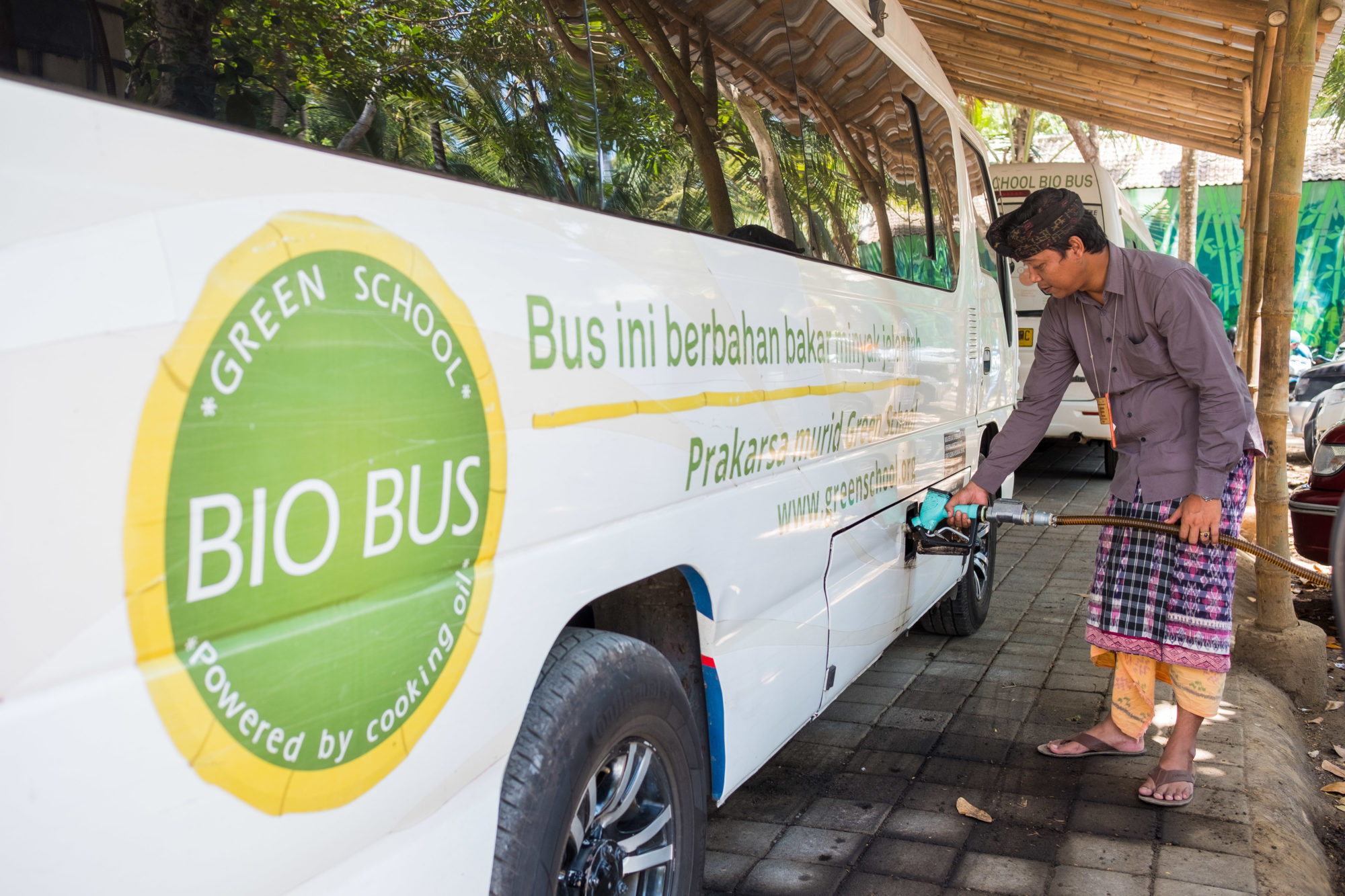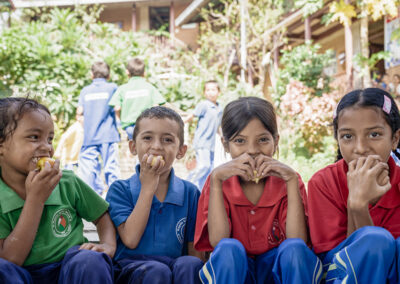Image: Green School Bali
Student activism in support of environmental change was visible in all of the initiatives shortlisted for the Environmental Award within this year’s International School Awards. This award category celebrates initiatives that include students and the wider school community in raising awareness and promoting change to support the local or global environment.
Student-led sustainability initiatives
Students at the International School of Zug and Luzern in Switzerland were shortlisted for the award for designing a small-scale aquaponics system on campus for use as a living laboratory in preparation for developing a sustainable alternative food source for a village in Ghana. In partnership with a school in Kokrobite, Ghana, ISZL’s prototype is the model for the larger system being constructed that will produce 20 tonnes of fish and 50 tonnes of vegetables annually for the Ghanaian community. In addition to providing a sustainable food source, the aquaponics system will provide the village with work and educational opportunities.
Also shortlisted were students from United World College Thailand. In 2015, students at the school participated in a mangrove restoration programme in collaboration with the Department of Marine and Coastal Resources, planting mangroves around the north of Phuket. Rich in biodiversity and a nursery for many fish and invertebrates, the mangroves also protect against erosion. UWC students have continued this programme, collecting, planting and tracking 20,000 mangrove samplings around the island. It has also inspired students to establish a mangrove planting project on the school campus.
Environmental learning and community support
In the Sultanate of Oman, students at The Sultan’s School were shortlisted for the Environmental Award for designing and developing a Smartbox as part of a whole-school focus on water and food security. The device tests soil moisture and temperature which ensures soil quality is maintained and vital water conserved in order to produce high-quality fruit and vegetables. The Smartboxes are now being trialled in nearby villages.
Another shortlisted school was the International School of Kenya where students have led a community-wide clean-up initiative and developed machines in order to re-use the plastic waste in new ways. The school’s Plastiki Rafiki initiative aims to empower other communities to develop and monetise grassroots plastic recycling and is helping students to not only see the value of recycling plastic, but to create income opportunities from doing so. With the help of an open-source plastic recycling community, the students build all their own machines and recycled products in the school’s fabrication lab using a range of plastic moulding techniques. New products have included furniture, skateboards, keychains and trophies. The students are now promoting plastic recycling on campus and within the wider Kenyan community.
Sustainability fuels student innovation
Green School Bali in Indonesia was the fifth school shortlisted for the 2022 Environmental Award. It is one of the only schools in the world that runs almost entirely on renewable energy. A student-initiated project introduced a BioBus initiative, which has received Green Citizen recognition by UNESCO and provides sustainable transport to the Green School community. Students collect used cooking oil from across Bali and turn it into biofuel which powers the school buses making BioBus the only service in Indonesia to operate on 100% biofuel. The school also now offers the first biodiesel pump station for public access in Indonesia.
The 2022 Environmental International School Award, which was sponsored by Metanoia, was awarded to International School of Zug and Luzern. View a short video of the winning initiative here.
Click here to learn more about the award and all the shortlisted initiatives.




